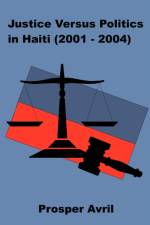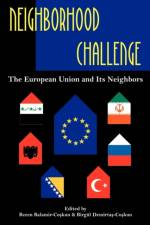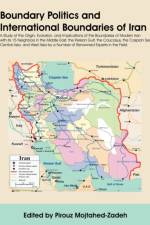- The European Union and Its Neighbors
av Bezen Balamir-Coskun & Birgul Demirtas-Coskun
547
One of the intriguing questions of the post-Cold War era has been whether the EU will play a major global role in world politics as non-traditional threats and challenges came to the forefront. Launching new policies such as the Common Foreign and Security Policy, the European Security and Defence Policy and the European Neighborhood Policy (ENP) have been considered important steps in the EU?s evolution as a regional and possibly global actor. Neighborhood Challenge analyzes critical aspects of the European Union's relations with its neighbours, by extending its analysis beyond the ENP. Unlike existing books on the subject, the volume covers the entire neighborhood from Russia, Ukraine, and Belarus to North Africa; from the Western Balkans to the South Caucasus and Central Asia. Such an extensive overview of EU policies toward its neighbors is a timely and valuable contribution to European Studies literature. This book can be used as a tool for both academicians and practitioners who specialize in European foreign and security policy; as a textbook in European Union foreign policy courses both at the undergraduate and graduate level; and as a comprehensive reference book for postgraduate students writing dissertations on European foreign and security policy in general and European Neighborhood Policy in particular. The contributions analyze challenges and prospects posed by countries neighboring the EU and the effectiveness of EU policy in dealing with these agendas. Region-focused chapters examine the EU?s politics toward the Western Balkans, Middle East, CIS, and the Black Sea; country-focused chapters explore aspects of Russia, Ukraine, Uzbekistan, Iran, Bosnia, Kosovo; and thematically-focused chapters deal with energy security, organized crime, and other issues. Neighborhood Challenge is intended to contribute to the existing literature on EU foreign and security policy in two ways: First, its material is not restricted to the ENP. Instead, it addresses all EU neighbors in a large region and their position in European security. The authors argue that not only the countries in the immediate neighborhood of the EU but also those located in relatively far away regions have a role to play in European Union foreign affairs. Secondly, many of the contributions were written by experts living in countries which neighbor the EU. Their contributions lend new ideas and insight to the relevant literature on EU security and foreign policy.






























